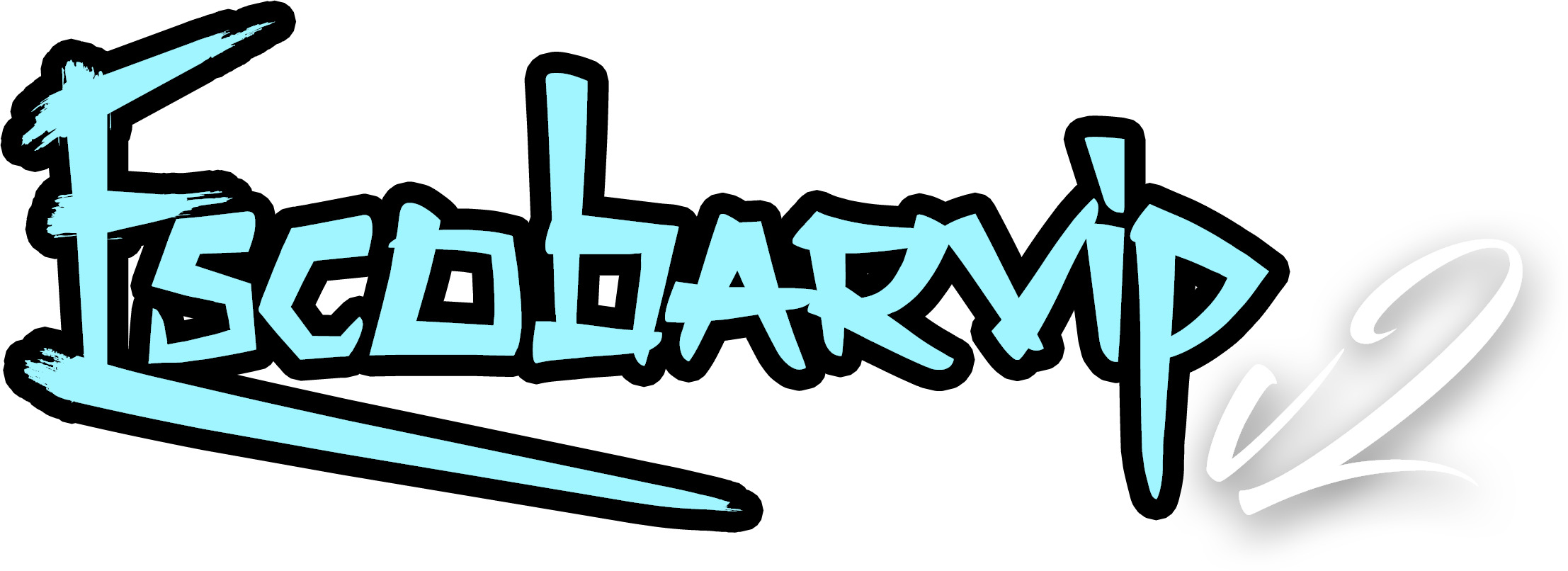**In an increasingly interconnected world, the concept of privacy has become a complex and often fragile construct. The internet, while offering unparalleled opportunities for connection and information, also presents significant challenges to personal boundaries. One term that occasionally surfaces in this digital landscape, particularly within Turkish online communities, is "Türk Ifsa Sotwe." This phrase, broadly referring to the unauthorized sharing or exposure of private content, highlights a critical and concerning aspect of online behavior that demands careful examination. Understanding the dynamics behind such phenomena is not merely an academic exercise; it's essential for safeguarding individual rights, promoting digital literacy, and fostering a safer online environment for everyone.**
The proliferation of social media, messaging apps, and file-sharing platforms has made it easier than ever for information, both public and private, to spread rapidly. While much of this sharing is benign and consensual, there is a darker side where personal photos, videos, or sensitive data are disseminated without permission. This article delves into the phenomenon often encapsulated by "Türk Ifsa Sotwe," exploring its implications, the severe consequences for victims, the legal frameworks in place to combat it, and crucial steps individuals can take to protect their digital privacy. Our aim is to provide a comprehensive, authoritative, and trustworthy guide to this sensitive topic, emphasizing the importance of ethical online conduct and robust cybersecurity practices.
Table of Contents
- What is "Türk Ifsa Sotwe"? The Phenomenon Defined
- The Digital Underbelly: Where Does Unauthorized Sharing Emerge?
- The Devastating Impact on Victims: Beyond the Screen
- Legal Ramifications: Combating Online Leaks
- Ethical Dilemmas: The Responsibility of Online Users
- Safeguarding Your Digital Footprint: Practical Privacy Tips
- Reporting and Response: What to Do If You're a Victim or Witness
- A Call for Digital Citizenship: Promoting Responsible Online Behavior
What is "Türk Ifsa Sotwe"? The Phenomenon Defined
The term "Türk Ifsa Sotwe" is not a formal or universally recognized technical term, but rather a colloquial phrase that has emerged within Turkish online discourse. "Ifsa" in Turkish means "exposure" or "leak," often implying the unauthorized revelation of private information, images, or videos. "Sotwe" is likely a phonetic or slang adaptation, possibly referring to "software," "social media," or a general reference to the digital environment where such leaks occur. Collectively, it refers to the concerning trend of private, often intimate, content belonging to individuals being shared or disseminated online without their consent. This can range from personal photos and videos obtained through hacking, revenge porn, or even content inadvertently made public due to lax privacy settings or social engineering. The core issue revolves around a severe violation of privacy and personal boundaries, leading to significant distress and harm for the victims.
This phenomenon is not unique to Turkey; similar issues exist globally under various names like "doxing," "revenge porn," or "non-consensual intimate image (NCII) sharing." However, the specific phrasing "Türk Ifsa Sotwe" highlights its particular prevalence or discussion within Turkish online spaces, indicating a cultural or linguistic context to this widespread digital problem. It underscores the need for localized awareness and intervention strategies, as well as a broader understanding of the universal principles of digital ethics and cybersecurity. The unauthorized sharing of private content, regardless of its origin or the specific term used, represents a profound breach of trust and a direct assault on an individual's dignity and autonomy.
The Digital Underbelly: Where Does Unauthorized Sharing Emerge?
The digital landscape is vast and varied, providing numerous avenues for information to travel. Unfortunately, this also means there are many potential points of vulnerability where private content can be exposed. Understanding these common pathways is crucial for both prevention and mitigation efforts against phenomena like "Türk Ifsa Sotwe."
Social Media and Messaging Apps
Mainstream social media platforms (like Instagram, Facebook, Twitter, TikTok) and messaging applications (like WhatsApp, Telegram, Signal) are designed for sharing and communication. However, their very nature can be exploited. Content intended for a small, private group can be screenshotted, downloaded, and then re-shared more widely without consent. Weak privacy settings, oversharing by users, or the compromise of accounts through phishing or malware can lead to private content falling into the wrong hands. Furthermore, some platforms, particularly those with less stringent content moderation policies, can become breeding grounds for the deliberate sharing of "ifsa" content, often fueled by malicious intent or a desire for notoriety.
Dark Web and Private Forums
Beyond the surface web, the dark web and various private, invitation-only forums serve as clandestine marketplaces and communities where illicit content, including leaked personal data and intimate images, is exchanged. These spaces often operate outside the reach of conventional law enforcement and search engines, making it incredibly difficult to track down perpetrators or remove content once it has been uploaded. Accessing such content often requires specific software or knowledge, but the existence of these platforms highlights the organized nature of some "Türk Ifsa Sotwe" activities, where individuals or groups actively seek out, trade, and distribute private information for various nefarious purposes, including financial gain, blackmail, or simply malicious pleasure.
The Devastating Impact on Victims: Beyond the Screen
The consequences of being a victim of "Türk Ifsa Sotwe" or any form of non-consensual content sharing are profound and far-reaching, extending far beyond the initial shock. The damage inflicted is often psychological, social, and even professional, leaving lasting scars that can be incredibly difficult to heal. Victims frequently experience a severe sense of betrayal, shame, and loss of control over their own narrative and image. This can lead to a range of debilitating mental health issues, including:
- Severe Anxiety and Depression: The constant fear of the content spreading further, coupled with public scrutiny and judgment, can trigger intense anxiety and deep depressive episodes.
- Post-Traumatic Stress Disorder (PTSD): For many, the experience is deeply traumatizing, akin to other forms of abuse, leading to symptoms like flashbacks, nightmares, and hypervigilance.
- Suicidal Ideation: The overwhelming feeling of helplessness and the destruction of their reputation can, in extreme cases, lead victims to contemplate suicide.
- Social Isolation: Victims may withdraw from social interactions, fearing judgment, ostracization, or further harassment. Their relationships with friends, family, and partners can be severely strained.
- Reputational Damage: The unauthorized content can permanently tarnish a person's reputation, affecting their academic prospects, employment opportunities, and overall public perception. Even if the content is removed, the digital footprint can linger.
- Financial and Professional Repercussions: In some cases, victims may lose their jobs, face difficulties finding new employment, or even experience financial extortion related to the leaked content.
It is crucial to remember that the blame for such incidents lies solely with the perpetrator who shared the content without consent, not with the victim. Society must shift its focus from victim-blaming to supporting survivors and holding offenders accountable. The pervasive nature of "Türk Ifsa Sotwe" and similar phenomena underscores the urgent need for robust legal protections, effective content removal mechanisms, and comprehensive support systems for those affected.
Legal Ramifications: Combating Online Leaks
The fight against unauthorized content sharing, including instances of "Türk Ifsa Sotwe," is increasingly being waged on legal fronts. Governments worldwide are recognizing the severe harm caused by such acts and are enacting or strengthening laws to prosecute offenders and provide recourse for victims. While the digital nature of these crimes presents challenges, legal frameworks are evolving to address privacy violations, data protection, and cybercrime.
Turkish Legal Framework Against Digital Exposure
In Turkey, several laws can be invoked to address the unauthorized sharing of private content. The primary legal instruments include:
- Turkish Penal Code (TPC) No. 5237:
- Article 134 (Violation of Privacy): This article criminalizes the recording of private life conversations or images without consent, as well as the sharing of such recordings. Penalties can include imprisonment.
- Article 135 (Unlawful Acquisition of Personal Data): This covers the unauthorized acquisition, recording, or dissemination of personal data.
- Article 136 (Unlawful Transfer or Acquisition of Data): Addresses the illegal transfer or acquisition of personal data.
- Article 138 (Failure to Destroy Data): Punishes the failure to destroy personal data despite the legal obligation to do so.
- Article 125 (Insult): If the shared content is accompanied by defamatory statements, this article can be applied.
- Law on the Regulation of Publications Made on the Internet and Combating Crimes Committed by Means of Such Publications (Law No. 5651): This law provides mechanisms for blocking access to websites or removing content that violates personal rights or constitutes a crime. It allows individuals to apply for content removal or access blocking orders directly.
- Law on the Protection of Personal Data (Law No. 6698): Modeled after GDPR, this law regulates the processing of personal data, granting individuals rights over their data and imposing obligations on data controllers. While primarily for data protection, its principles reinforce the illegality of unauthorized data dissemination.
Victims of "Türk Ifsa Sotwe" can file a criminal complaint with the public prosecutor's office or seek civil remedies for damages. The Turkish legal system is increasingly equipped to handle cybercrimes, though challenges remain in identifying anonymous perpetrators and ensuring swift content removal from international platforms.
International Cooperation and Challenges
A significant challenge in combating online leaks is the cross-border nature of the internet. Perpetrators and servers can be located in different countries, complicating legal jurisdiction and enforcement. International cooperation through treaties like the Budapest Convention on Cybercrime is crucial. However, differences in national laws, varying levels of law enforcement capacity, and the sheer volume of content make it a continuous uphill battle. Despite these challenges, legal pressure on platforms to implement stricter content policies and respond to removal requests is growing, reflecting a global commitment to protecting digital privacy.
Ethical Dilemmas: The Responsibility of Online Users
Beyond the legal ramifications, the phenomenon of "Türk Ifsa Sotwe" brings to light profound ethical dilemmas that every internet user must confront. The ease with which content can be shared often overshadows the moral implications of doing so, particularly when it involves private information. The core ethical question revolves around consent, respect, and empathy in the digital realm. When someone encounters leaked private content, whether it's an image, video, or personal data, they face a choice: to participate in its dissemination or to act responsibly.
The "bystander effect" can be particularly strong online, where individuals might feel less personal responsibility when part of a large, anonymous crowd. However, every share, every view, and every comment on unauthorized content contributes to the victim's distress and perpetuates the harm. Ethically, users have a responsibility to:
- Refrain from Sharing: The most fundamental ethical duty is to never share or redistribute content that appears to be private and non-consensual.
- Report Content: Instead of engaging, users should report such content to the platform it's hosted on. Most social media and content-sharing sites have mechanisms for reporting privacy violations.
- Challenge Misinformation and Victim-Blaming: Actively counter narratives that blame victims or normalize the sharing of private content.
- Educate Others: Share knowledge about digital ethics and the severe consequences of online leaks with friends, family, and peers.
- Cultivate Empathy: Before interacting with any content, consider how you would feel if you or a loved one were the subject of such an unauthorized exposure.
The ethical compass for online behavior should be no different from that in the real world. Respect for privacy, dignity, and autonomy should be paramount. By making conscious, ethical choices, individual users can collectively create a more respectful and safer digital environment, pushing back against the spread of harmful phenomena like "Türk Ifsa Sotwe."
Safeguarding Your Digital Footprint: Practical Privacy Tips
While legal and ethical frameworks are crucial, proactive personal measures are equally vital in protecting oneself from privacy violations, including the potential for "Türk Ifsa Sotwe." A robust digital hygiene routine can significantly reduce your vulnerability. Here are practical tips to safeguard your digital footprint:
- Review and Strengthen Privacy Settings: Regularly check the privacy settings on all your social media accounts, messaging apps, and other online services. Set them to the highest level of privacy possible, limiting who can see your posts, photos, and personal information. Understand who can tag you or share your content.
- Be Mindful of What You Share: Think before you post. Once something is online, it can be incredibly difficult to remove entirely. Avoid sharing sensitive personal information, intimate photos, or anything that could be used against you or cause embarrassment if widely disseminated.
- Use Strong, Unique Passwords and Two-Factor Authentication (2FA): A weak password is an open invitation for hackers. Use long, complex passwords unique to each account. Enable 2FA wherever possible; this adds an extra layer of security, requiring a second verification step (e.g., a code from your phone) in addition to your password.
- Be Wary of Phishing and Scams: Do not click on suspicious links or open attachments from unknown senders. Phishing attempts are designed to trick you into revealing your login credentials or installing malware that can compromise your devices and data.
- Regularly Update Software and Devices: Keep your operating systems, applications, and antivirus software up to date. Updates often include critical security patches that protect against known vulnerabilities.
- Limit Information on Public Profiles: Be cautious about the amount of personal information (e.g., full birthdate, home address, phone number, workplace) you display on public profiles. This information can be used for doxing or identity theft.
- Consider Who You Connect With: Be selective about who you accept as friends or followers online. A seemingly harmless connection could be a gateway for malicious actors to access your private content.
- Secure Your Wi-Fi Network: Ensure your home Wi-Fi network is secured with a strong password and encryption (WPA2 or WPA3). Avoid using public, unsecured Wi-Fi for sensitive activities.
- Perform Regular Data Backups: While not directly preventing leaks, having backups of your important data ensures that even if your devices are compromised, you don't lose everything.
By adopting these habits, individuals can significantly enhance their digital security posture and reduce the risk of becoming a victim of "Türk Ifsa Sotwe" or other forms of online privacy breaches. Vigilance and continuous education are key in the ever-evolving digital threat landscape.
Reporting and Response: What to Do If You're a Victim or Witness
If you or someone you know becomes a victim of "Türk Ifsa Sotwe" or any form of non-consensual content sharing, swift and decisive action is crucial. The emotional toll can be immense, but taking immediate steps can help mitigate the spread of content and bring perpetrators to justice. Similarly, if you witness such content online, you have a responsibility to act responsibly.
Steps for Victims:
- Do Not Engage with the Perpetrator: Do not respond to messages, threats, or demands from the person who shared the content. This can escalate the situation or provide them with more information.
- Document Everything: Take screenshots of the content, the platform it's on, the URL, timestamps, and any associated messages or profiles. This evidence will be vital for reporting.
- Report to the Platform: Immediately report the content to the platform where it is hosted (e.g., social media site, forum, website). Most platforms have clear reporting mechanisms for privacy violations, harassment, or non-consensual intimate imagery. Be persistent if the initial report doesn't yield results.
- Contact Law Enforcement: File a formal complaint with your local police or cybercrime unit. Provide them with all documented evidence. In Turkey, this would involve contacting the public prosecutor's office or the cybercrime department of the police. They can initiate an investigation and pursue legal action under relevant laws.
- Seek Legal Counsel: Consult with a lawyer specializing in cyber law or privacy law. They can advise you on your legal rights, options for content removal, and potential civil lawsuits for damages.
- Seek Emotional Support: The experience can be traumatic. Reach out to trusted friends, family, or mental health professionals. Organizations specializing in victim support for cyber-harassment can also provide invaluable assistance.
- Secure Your Accounts: Change passwords for all your online accounts, especially those that might have been compromised. Enable two-factor authentication (2FA) wherever possible.
Steps for Witnesses:
- Do Not Share or Download: Do not contribute to the spread of the content.
- Report the Content: Use the platform's reporting tools to flag the content as a violation of terms of service or privacy.
- Support the Victim: If you know the victim, offer support and encourage them to take the necessary steps, without pressuring them.
- Educate Others: If appropriate, gently inform others who might be unknowingly sharing the content about its harmful nature.
Acting quickly and responsibly is key to minimizing the harm caused by "Türk Ifsa Sotwe" and similar privacy breaches. Every report and every act of support contributes to a safer and more accountable online environment.
A Call for Digital Citizenship: Promoting Responsible Online Behavior
The discussion around "Türk Ifsa Sotwe" is ultimately a call for better digital citizenship. In an era where a significant portion of our
Related Resources:



Detail Author:
- Name : Yvette Donnelly
- Username : vschulist
- Email : paucek.domingo@skiles.biz
- Birthdate : 1973-07-16
- Address : 57351 Brekke Mall Apt. 648 Sauerberg, WY 10142-1638
- Phone : +1 (610) 904-3210
- Company : Champlin-Wilderman
- Job : Registered Nurse
- Bio : Possimus dolor voluptas dolores. Ab quod unde dolores similique. Quaerat iste unde eum cumque voluptatem. Nemo reiciendis autem occaecati rerum itaque fugit voluptatem.
Socials
tiktok:
- url : https://tiktok.com/@mantem
- username : mantem
- bio : Molestias rerum voluptate voluptatem error. Nemo quis nihil quae quis.
- followers : 5777
- following : 2745
instagram:
- url : https://instagram.com/mante2005
- username : mante2005
- bio : Ut aliquam suscipit velit omnis. Et et voluptas odio occaecati. Ipsa amet consequatur ad sunt.
- followers : 2050
- following : 1655